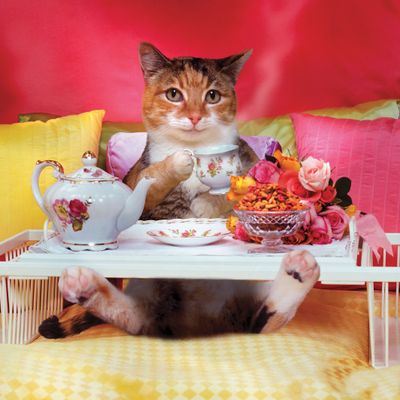
This just in from the New York Times “Style” section: People in America are saying words from Britain! Alex Williams writes:
Crikey, Britishisms are everywhere. Call it Anglocreep. Call it annoying. Snippets of British vernacular — “cheers” as a greeting, “brilliant” as an affirmative, “loo” as a bathroom — that were until recently as rare as steak and kidney pie on these shores are cropping up in the daily speech of Americans (particularly, New Yorkers) of the taste-making set who often have no more direct tie to Britain than an affinity for “Downton Abbey.”
Perso, I speak French at home, so the only sentence I followed was, “Call it annoying.” To learn more about this Important Trend, I asked one of my good friends with an accent — and a writer for this very blog — Alex Rees to break it down for me … us, really, because I’m always thinking of you, readership. If you have any questions for Cut Alex, you can leave them in the comments and he’ll do his best to respond British-ly.
When did you first learn to speak British?
We have a special version of Hogwarts that every British-born baby is sent to using a magic portal in maternity-ward cribs. First, the nurses sprinkle a special kind of Floo Powder over the whole ward each evening just after Coronation Street finishes, then we’re transported to a fifties-style boarding school where both Dame Maggie Smith and Kate Middleton teach us proper English, and we can’t leave until we’re able to fully pronounce the letter H.
What is it like to be ahead of a trend — in effect, a trendsetter?
I’m just about as pleased as punch, even though I probably shouldn’t say so — such a show of self-promoting ostentatiousness is really far more American.
Do Americans sound (a) ridiculous or (b) utterly ridiculous when they use Britishisms?
Both — not to mention (c) irritating, because they inevitably follow their mangled attempt at a British accent by requesting you to do an American accent in return. As it happens, I do a very good bayou drawl.
How often do you ride the “tube”? Take a “lift”?
Taking the London Underground, when compared to New York’s grimy subways, is a veritable dream. It’s classy enough for a summer picnic of cucumber sandwiches and scones, even — if you can lug a folding table and the appropriate doilies down the escalators to the platforms. (Worth noting, however: The Tube is extortionately expensive and so I often take a bendy bus instead.) I take the lift when I need to go either up or down in a building.
How do you feel inside when someone ends an e-mail with “Cheers!”?
As any British person would/should, I take it as an opportunity to drink. In fact, I’m knocking back an alcoholic cider right now. Cheers!
On a scale of one to infinity, how hard do Associated Supermarket employees in AMERICA laugh when you ask for toh-mah-toes?
Infinity and beyond. On many occasions, they will ask me to record quintessentially British greetings like, “Hello, I’m British” on their mobile phones.
Real talk: Did you know that the term “no worries” was British?
Pretty sure this is a lie. A truly British outlook on life means that you’re always worried about something.
Do you think the appropriation of British words is confined to the fashion world, or is this a widespread epidemic?
Well, speaking from personal experience, I have converted my very-American boyfriend (who at his own relieved admission couldn’t be much further from the fashion world) into saying things the right way, so I would like to think our way of speaking represents an unstoppable force. WE’RE COMING FOR YOU ALL, and before tea-time too — so get prepared to ask for Earl Grey and two chocolate digestives.
In conclusion, how do you feel about the Times’ trend piece?
It’s a pile of old codswallop.




